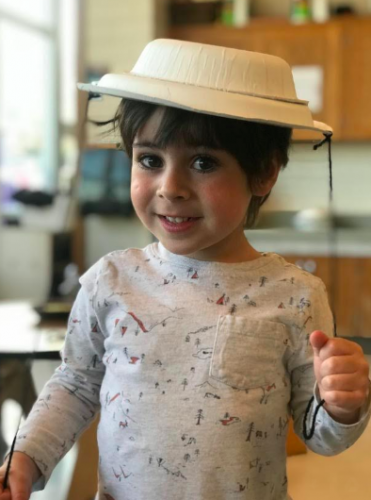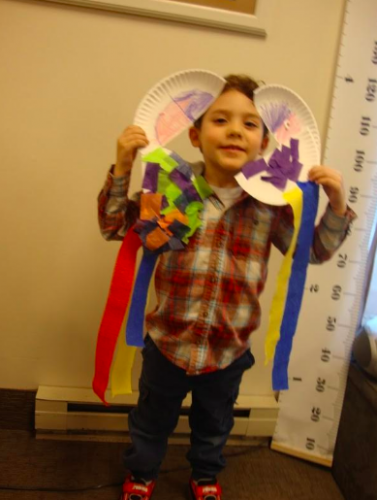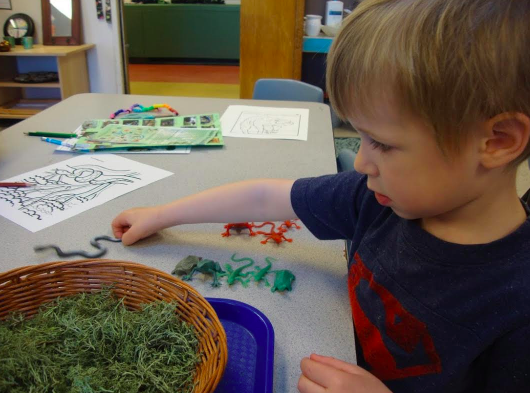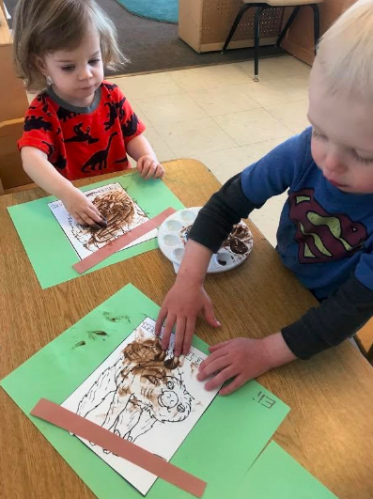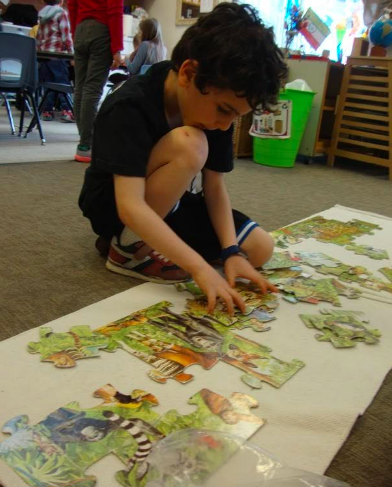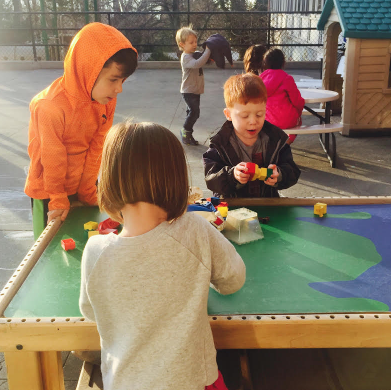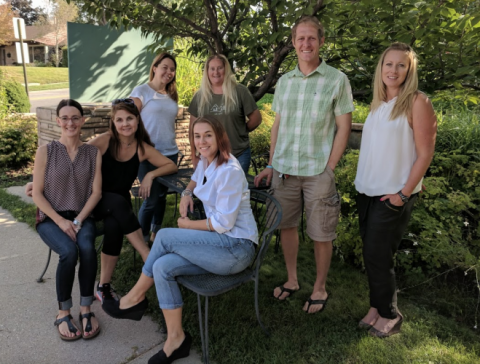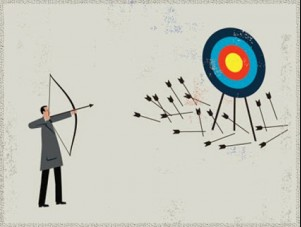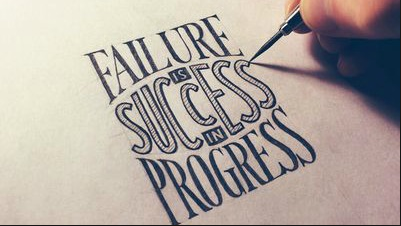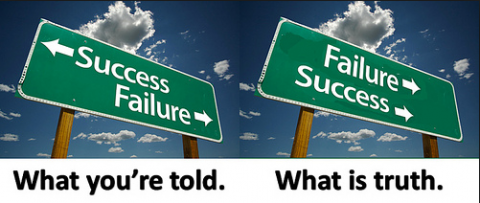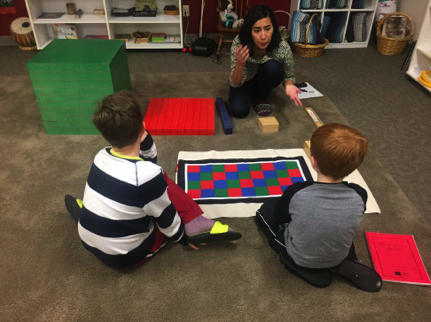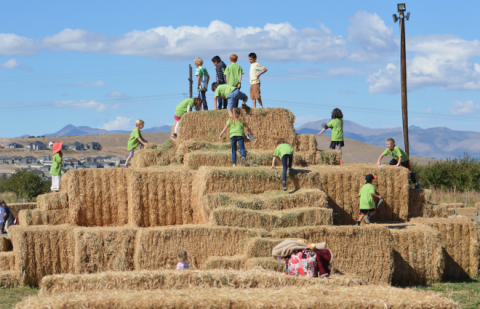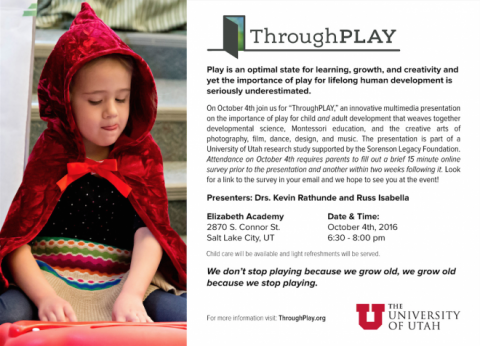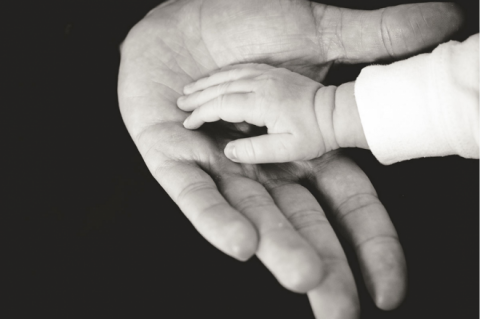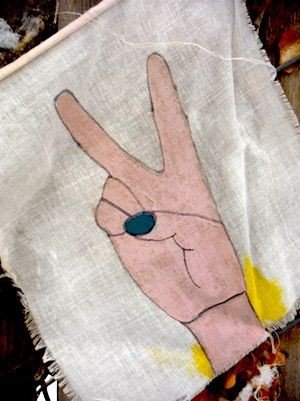I started my adult life as a teacher and I think I eventually grew in to a very good one. So, you can imagine my bewilderment when each of my three children were “slow to read.” (Confession – I actually don’t believe in “slow” or “quick” when it comes to the learning process…but I forgot about that when it was my kids!) I did all the right things. We read books together from the time they were infants, they saw me reading for enjoyment, and they each attended very well prepared Montessori classrooms from the time they were 2 (or less) years old. Like any other parent, I grew frustrated and worried.Fast forward a few years and my youngest son just recently hit his “explosion” in to reading and let me tell you, it was glorious. It was no less glorious for him than it was for his peers who had this same explosion at 3 and 4 years old. His world is equally bright. And then there’s me over here remembering how brilliant these little beings are when we give them the space to grow at their own pace. Children will learn every single thing we think they need to learn AND SO MUCH MORE. They are developing every skill they need in just the right time. As for the skills they aren’t developing (that perhaps you’re wishing would come a little faster) – they are learning equally important ways to manage without and building an entire skill set that they can access throughout their entire lives.Believe it or not, the most important job a parent has is to have faith and trust in our little people. I am absolutely convinced that they will do far more to teach us than we will them!
I hope this article is inspirational in reminding you, as it did me, to enjoy your opportunity to sit back and enjoy the show as these lovely little beings climb mountains to reach their highest potential. Rest easy knowing that everything is unfolding just as it should.
For Parents Who Worry (Isn’t That All of Us?) by Jane M. Jacobs, M.A., Montessori Educational Consultant at Montessori Services.
By now your children are settled in their classrooms and are being cared for and educated by your extended “village.” Perhaps you’re still concerned about whether your child is adjusting well and learning enough. Like all parents, you want your children to be happy and learn the skills they need for success.
As Montessori suggests in the above quote, young children naturally grow and learn from their surroundings without being directly taught.
No Need to Be Anxious
It’s hard not to be anxious, especially with your first child. You learned to do all the right things as your child grew from infancy to childhood. Now your child is more capable and independent.
Because of their absorbent minds, preschoolers do not need direct teaching in order to learn. This is the period of children’s self-construction, learning from the environment in which they live.
Try not to worry about what the latest expert or neighbor says. Take time to just be with your child. Adapt your home so your toddler can explore safely. Observe his new independence and sense of self. Remember to relax and have fun, too.
Did you know that children learn best when exploring the world with hands-on activities? Research shows that children who are prematurely pushed into academic drills become less creative and enthusiastic learners, and do not retain information any better than those who learn facts later. Instead, a focus on play is key at this age, helping children to develop social and emotional skills that are important for long-term success.
Everyone Compares
It’s easy to look at your friend’s child and compare. However, it’s important to remember, we are not all alike! No two children are on the same timetable, even if they are the same age. Keep your expectations in line with your child’s abilities. Change is constant with a growing child.
Beware of the accelerated-learning industry. Baby DVD’s or reading programs have proven worthless and sometimes detrimental to development. It’s actually more productive to let your child scoot around the floor, play with pots and pans, or sing silly songs with you. Reading and talking to your child, and helping him learn to care for himself are better options. Your job is to expose him to the world without any pressure.
Basic Child Development
Of course, all of our children are intelligent! Notice how easily they learn to sing the ABC song or count to 20, even if the real understanding of what letters or numbers actually mean comes much later. Remember, these little imitators continually absorb our habits and language. Before the age of three, learning is unconscious. As children’s brains and bodies develop, they spontaneously work to perfect their movements.
Your neighborhood is filled with learning opportunities: backyards, nature, friends, games, playgrounds, libraries, and more. The whole world is there for a young child to experience. This is taking “account of life itself.”
Stay in the Present
Notice how the phrases roll off your tongue: “She needs to have all A’s if she’s going to get into a good college,” or, “That will look really good on his resume.” Extra-curricular activities can easily become obligations rather than enjoyable opportunities. In this competitive era, it’s easy to overlook your children’s natural abilities and desires, and instead place them in something that may not be a good fit.
Trust your child to find his own path in his own way. Can we respect our child enough to see where his real interests are and then help him get the experience he wants right now, letting go of our anxieties about the future?
Respecting Your Child
Your child has natural likes and dislikes. If she shows an interest in something, give her room to pursue it on her own. For example, a friend’s daughter saw a snake in her yard and became fascinated. Her parents patiently waited to see if the interest persisted. When it did, they got their daughter a book about snakes and took her to the science museum to see live ones. As a teenager, the girl had several pet snakes that she bought and cared for on her own.
As parents, we are often ready to pounce on any little thing our child does and latch onto it (though typically not with snakes). If he likes music, we hurry to buy musical instruments, get him piano lessons, compliment his singing, and brag about his musicality. Instead, we recommend slowing down and simply enjoying music together, whether by going to a concert, singing, dancing, or clapping out rhythms. If the interest lasts, you can offer your child more opportunities for practice in the future.
At birth, children are equipped with everything they need to survive and be successful in this world. As adults, we must respect their innate capabilities so we can enjoy their amazing absorbent minds. Children will learn and grow without our pushing. In fact, not much more is needed from us than basic food and shelter, along with our respectful attention and unconditional love while we are just living life itself.
“If you observe children doing purposeful activity independently and with concentration, let them be. Observe, and know that they are headed in the right direction, even though the work might not be what you would choose for them to do.”
—Maren Schmidt, M.Ed., Building Cathedrals, Not Walls
—by Jane M. Jacobs, M.A., Montessori Educational Consultant at Montessori Services. She is a trained primary Montessori directress and also a Licensed Marriage and Family Therapist. She has taught children aged 2 to 7 years in Montessori schools, Headstart, and also in a preschool for children with developmental challenges. In her counseling practice, she helps individuals, couples, and families.
